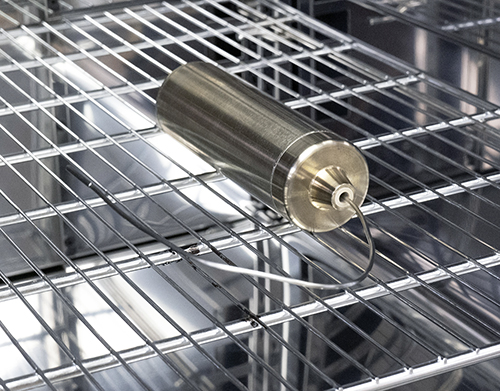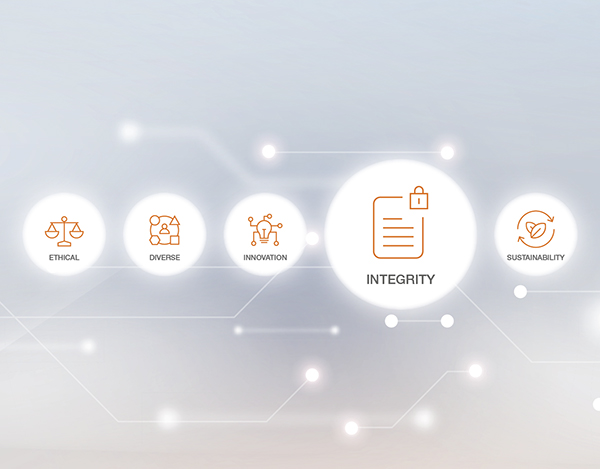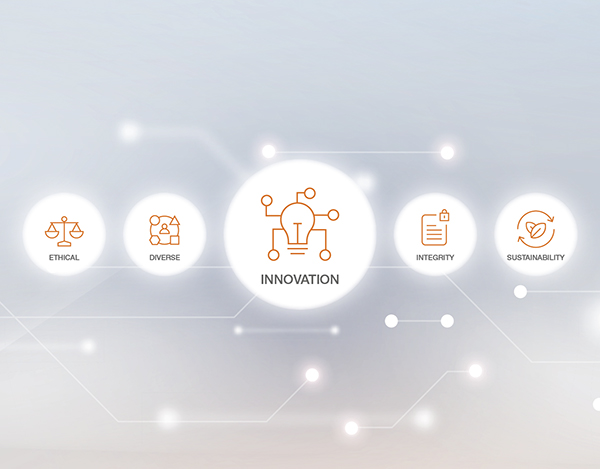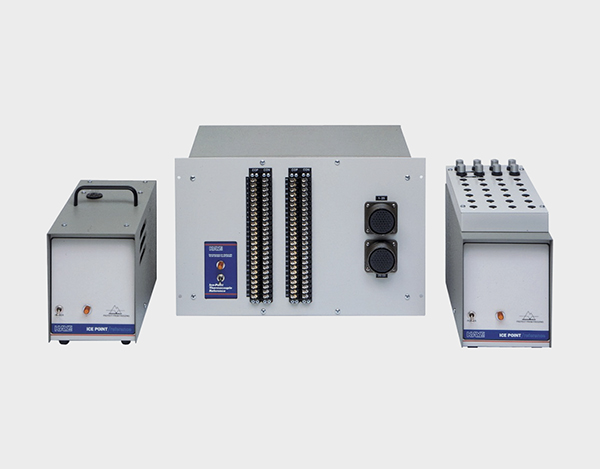
- Blog Post
Use of Battery-Powered Real-Time Data Loggers at Temperatures Above +140°C
When it comes to high-precision thermal validation in closed chambers—such as depyrogenation tunnels, drying ovens, or high-temperature test environments—real-time data loggers are indispensable tools. They offer unmatched flexibility in handling and placement while enabling continuous monitoring and validation. However, like all technologies, they face limitations—especially when operating in extreme heat.

- Blog Post
Integrity as a cornerstone and standard for ethical conduct
In a time when companies face increasing pressure in a rapidly changing market, integrity is an essential pillar for sustainable success. At Kaye, a company of Amphenol, integrity is not just part of our corporate philosophy but also the standard by which all our decisions and actions are measured.

- Blog Post
Innovation – Our guiding principle for over 65 years
In the dynamic world of technological and automated solutions, innovation is the key to success. At Kaye, a subsidiary of Amphenol, we have embraced this core value for over 65 years. Our continually innovative approaches, which push the boundaries of what is technically possible to develop practical solutions, have established us as a leading provider in the validation of thermal processes. The needs of our users are at the forefront—from developing technologically outstanding products to meeting all regulatory requirements in the pharmaceutical and biotechnology sectors.

- Blog Post
Diversity as a Success Factor at Kaye
At Kaye, a subsidiary of Amphenol, we recognize diversity as a crucial component of our corporate culture. It fosters creative solutions and drives us to incorporate a global perspective into our daily decisions, which ultimately enhances our success and innovation.

- Blog Post
Ice Point Reference - A practical solution for error-free temperature measurement in thermocouple circuits
The aerospace industry sets particularly strict and accurate standards for thermal processing, outlined in specifications such as AMS 2750 (current version: AMS 2750F) and the industry manual by NADCAP (National Aerospace and Defense Contractors Accreditation Program). Accurate measurement and calibration of the temperature sensors used, as well as all process monitoring and temperature-dependent system components, play a central role. The aim of this blog post is to give a brief description of the ice point references used and to highlight their importance in complying with guidelines.

- Blog Post
Responsibility and Transparency: Our Commitment to Ethical Practices
In the ever-evolving modern business world, one constant remains: the indispensable value of ethics. At Kaye, a subsidiary of Amphenol, we have declared ethics as one of our core values, and today we would like to provide you with insight into what this means for us concretely and why it is of utmost importance in our work.

- Blog Post
Maximum Efficiency and Precision in Calibrating up to 24 Temperature Sensors
The Kaye LTR-200 is specifically designed to calibrate temperature sensors precisely, offering a wide temperature range from -50°C to +200°C. Ideal for various calibration tasks in the pharmaceutical and biotechnology industries, this system enables simultaneous calibration of up to 24 thermocouples.

- Blog Post
Documentation for Your Kaye Validation Systems: Ensuring Compliance with Professional Support and Detailed Documents
In the pharmaceutical industry, thorough and accurate documentation is vital when validating measurement systems. Efficiency enhancement and compliance assurance are achieved through comprehensive validation documentation and user support, as provided by Kaye Measurement Systems. This detailed documentation not only ensures regulatory compliance and enables traceability but also forms the basis for continuous improvement processes and the identification of optimization potential within the systems.

- Blog Post
Kaye CTR-25 Calibration Bath - The Ideal Calibration Bath for Data Loggers
Checking the calibration parameters in data loggers is an important part of functional quality management. Especially with temperature data loggers, regular verification of the validity of the calibration data is a recommended practice within risk assessment. Mobile data loggers are exposed to various stresses that can have a lasting negative effect on the calibration offsets stored in the loggers. Documented and regularly conducted checks serve to prevent incorrect measurements and the potentially associated need to repeat an already carried out validation study.

- Blog Post
Hardware and Software Upgrades for Kaye ValProbe RT Enhance User-Friendliness and Expand Application Scope
The latest expansion of the Kaye ValProbe RT® product line introduces additional technical and user-oriented features that improve user-friendliness and broaden the application spectrum for GxP compliant validation studies. Thanks to improved hardware and software features, such as the support for up to 50 Kaye ValProbe RT® real-time data loggers per study, application-centric applications such as CO2 incubator qualification are sustainably supported. An additional standard evaluation tool based on AFNOR FDX15-140 also simplifies the qualification of climatic chambers of any type and size.

- Blog Post
Risk Analysis in Pharmaceutical Manufacturing: The Importance of Qualifying Critical Process Equipment
The pharmaceutical industry constantly faces the challenge of meeting stringent regulatory requirements and high-quality standards. One of the essential tasks is the qualification of critical process equipment. Traditionally, predefined guidelines and standards are followed. However, the increasing focus on quality and safety necessitates more: a comprehensive risk analysis that identifies and evaluates potential sources of hazards. In this paper, we highlight why risk analysis is an indispensable part of the qualification process and how it can be effectively integrated into the qualification plan. The goal is to raise awareness and underscore the importance of risk analysis with subsequent risk evaluation.

- Blog Post
Ensuring Safe Transport and Optimizing On-Site Data Logger Handling
In the meticulous environment of pharmaceutical operations, ensuring the integrity and security of data loggers is paramount. The management of Kaye ValProbe (RT) data loggers requires high-quality, robust solutions to simplify transport, storage, and management—key aspects to maintain the accuracy of crucial data.

